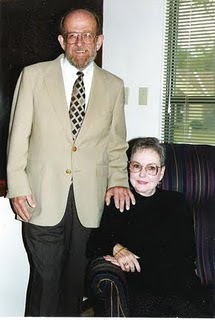 Brenda had the DVR set set in order to watch the Royal Wedding later in the day. Since she woke up and couldn't go back to sleep, she decided to watch it live. I remember watching the wedding of William's mom and dad while I was on a tour across Canada in 1981. What an insight into British culture--then and now.
Brenda had the DVR set set in order to watch the Royal Wedding later in the day. Since she woke up and couldn't go back to sleep, she decided to watch it live. I remember watching the wedding of William's mom and dad while I was on a tour across Canada in 1981. What an insight into British culture--then and now.We want this marriage to last forever. Witnessing William's parent's marriage dissolve before our eyes was a sad disillusion. The horses and carriage, the long, traditional white gown, the church and the minister offering the vows--this all seems like a fairy tale. The world is tuning-in by the billions to watch the spectacle and we can't get enough. Sadly, money, pomp, social status, education, health, beauty and youth don't guarantee Kate and William's success in marriage. It is obvious that they have affection for one another. Still, there are a few things that I want to offer them that have worked for Brenda and I for almost 26 years. I know that I'm a commoner and don't have the up-hill struggles that a Royal has. But I want to give these simple suggestions to you both as you ride off into your "happily ever after."
1. Be nice to each other. Treat each other with courtesy. Say "hi"--a billion times a day if necessary.
2. Say I love you often. Don't hold the notion, "I told you when I married you!" William, you are the initiator (sorry , I'm old-fashioned!).
3. Stay connected throughout the day. Text messages and quick phone calls can do the trick.
4. Make your marriage "priority one" over all others--even the church (not to be confused with God Himself!), and sit down for this--the children. Your kids' lives are enriched when mom and dad are in love and deeply committed.
5. Have a weekly date. Try to honor it even if you have to scoot the calendar around to make it happen. Make it a financial priority--it doesn't have to break the bank either.
6. Give each other the grace to "rewind the tape" when something said in an argument comes out in a hurtful manner. Communication is the hardest part of marriage. To remember that you two are totally different people will help you to slow down and think about how to say things clearly and with wisdom.
7. Give each other the space to enjoy different hobbies and friendships, but always prioritize your time together.
8. Make decisions together, especially the ones that are significant. William, God gave you a wonderful partner whose opinion just might save your rear-end at times, and conversely, Kate has you. When you agree upon a direction to go, what can stop you?
9. Learn to create boundaries around your marriage, home and family life. Others will want to break in at times but you must "schedule" family time. You do not have to explain your family appointment schedule to anyone. Don't let the pursuit of money, stature or fame steal from your family (there are times when making a living will require time from you, but don't let it take over your life.)
10. I recently heard an 88-year old man say of his 67 year marriage, "It takes L.O.V.E.!" This word goes right past us sometimes. But to me that means we must cherish, sacrifice for, honor, prioritize, listen to, have grace for, nurture and pursue--like we did when we were chasing after--our bride. Before you know it, the days turn into months, years and decades and life will be full of joy.
May God bless both of you as you start this journey together!



